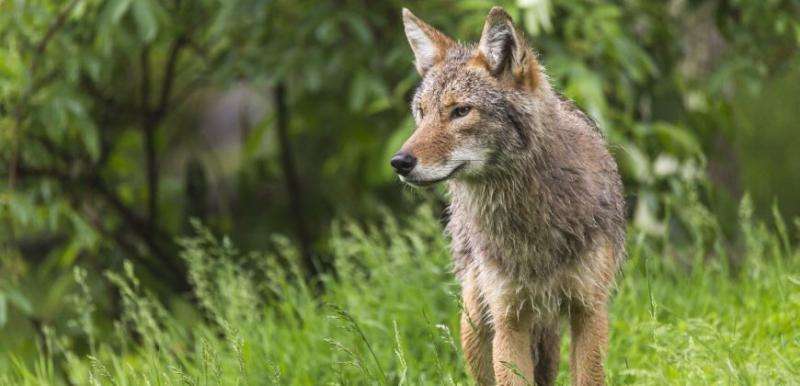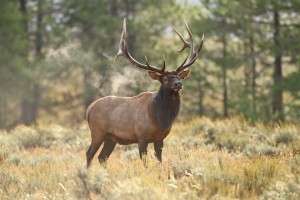Americans tend to think about wildlife like their ancestors did

Researchers from Colorado State University and The Ohio State University have found evidence that we think about wildlife like our ancestors did.
More specifically, the strength of Americans' "domination" wildlife values, or the belief that nature should be conquered and the natural environment used for the benefit of humans, can be traced to the country from which their ancestors migrated.
Values are shifting
At the same time, researchers demonstrated that, overall, Americans' values toward wildlife are shifting from a domination view to the view that wildlife deserves treatment equal to humans. Researchers call this line of thought about wildlife "mutualism."
The study of values has important implications for human-environmental interactions, and the management of wildlife throughout the country. Wildlife managers serve diverse constituencies with wide ranging viewpoints on management approaches. If managers understand the value orientations of their constituents they can frame the feedback they receive in those contexts, and can communicate their decisions more effectively.
In a recently published article in Conservation Biology, researchers from CSU and OSU reported on their study that asked questions about values toward wildlife among residents of the western United States.

Link between values and ancestry
"From what we know about human values, we assumed that they would persist over many generations and be unlikely to change without a significant reason," said lead investigator Mike Manfredo, head of CSU's Department of Human Dimensions of Natural Resources. "Still, it was a bit surprising to find we could make such clear links between wildlife values and countries of ancestry."
The researchers, who also include Professor Tara Teel at CSU and Assistant Professor Alia Dietsch at OSU, conducted their investigation as part of a long-term research program designed to monitor change in wildlife values over time. The survey measured domination and mutualism values toward wildlife in addition to asking people their ancestors' country of origin.
The researchers grouped respondents by country of origin and then compared wildlife value scores to contemporary value scores for residents living in those same countries. These country's values scores were obtained from a global values survey that included a measure of "mastery" over the environment.
"The relationship was striking," said Manfredo. "For example, the Netherlands, Germany, Denmark and Norway had the highest mastery scores, and Americans who claimed ancestry from those countries had high scores on domination toward wildlife."

Differences among urbanized states
Interestingly, while values toward the environment appear persistent, the researchers also found residents of more urbanized states with higher levels of income and education have lower levels of domination and a growing emphasis on mutualism.
In practical terms, those with mutualism values have very different environmental priorities than those with domination values. Mutualism is associated with concerns about declines in wildlife populations and limiting human use of the environment. In contrast, domination is associated with concerns for a healthy economy, private property rights, and lethal control of carnivores when they conflict with human interests.

Can we expect values to keep changing in ways that appear to be more consistent with environmental sustainability? The findings are mixed, according to Manfredo.
"It appears as though that type of change is occurring with modernization," he said. "However, we simply do not know if it will continue and if it does, how fast it will occur."
More information: Michael J. Manfredo et al. Implications of human value shift and persistence for biodiversity conservation, Conservation Biology (2015). DOI: 10.1111/cobi.12619
Journal information: Conservation Biology
Provided by Colorado State University

















